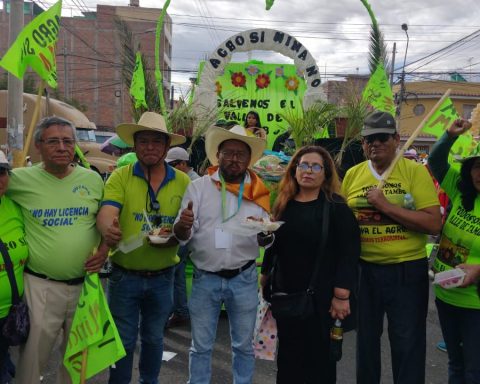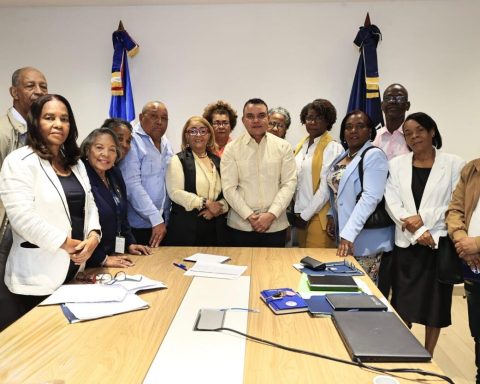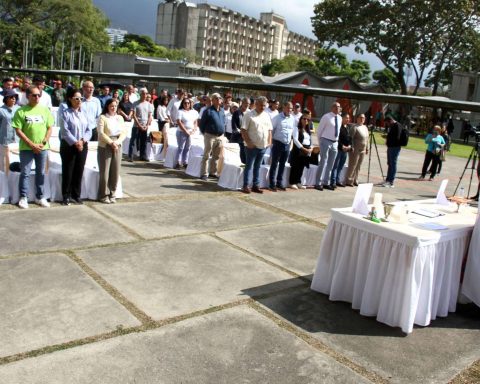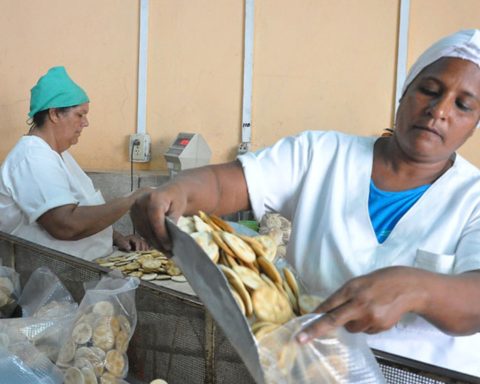Three days after the Buenos Aires Chamber of Deputies gave half a sanction to a project of its authorship that promotes humanized childbirthMariana Larroque (Frente de Todos) stressed that “great progress” would be made in terms of respect for the rights of pregnant people if “health teams were trained to accompany deliveries instead of intervening” in them.
Last Thursday, the Chamber approved the Provincial Strategic Plan for Respected Childbirth, an initiative of the legislator, which is proposed as a complement to National Law No. 25,929 and whose purpose is to achieve its application throughout the territory of the district.
in 2020at the beginning of the pandemic, Larroque presented in the Buenos Aires Legislature two projects related to respected childbirth: a project of adherence to the national and the Provincial Strategic Plan of Respectful Childbirth.
“We have had a national law since 2004, but it is very poorly enforced. We first worked on adherence because, oddly enough, many institutions argued that they did not have to comply with a law to which the province was not adhered,” said the deputy. in dialogue with Télam. She added that at that time Buenos Aires was one of the three jurisdictions that had not adhered to the national standard.
The legal framework
The Pregnancy and Newborn Protection Law establishes the right of pregnant people to be informed about the different medical interventions and to be treated with respect, guaranteeing their privacy and taking into account their cultural guidelines.
In addition, it determines that those who gestate have the right to a natural and respectful birth in terms of their biological time, avoiding invasive practices and the supply of medication without just cause; and to be accompanied by a person you trust during childbirth and postpartum.
“We knew that with the adhesion it was not enough because despite being approved since 2004, regulated since 2015, obstetric violence continued to be exercised and in the pandemic it intensified,” explained the deputy.

In parallel, he presented the Provincial Strategic Plan for Respected Childbirthwhich reaffirms the principles of Law No. 25,929 and proposes to create a table within the Buenos Aires Ministry of Health, which should articulate policies on the matter with the Ministry of Women, Gender Policies and Sexual Diversity, associations and professional associations , civil society organizations, the scientific community and other actors.
On Thursday, after its approval in the Chamber of Deputies, it was sent to the Senate of the province.
“We have a national law since 2004, but it is very poorly enforced”
The objective is that it be a space for consultation, discussion and generation of proposals and protocols for the development and implementation of the Plan, as well as a place that assists and trains all health teams and personnel of health institutions in gender. And that promotes accompanying territorial community strategies.
Larroque highlighted the importance of “listening to the voice of those who are there every day carrying out deliveries, births, going to give birth.”
He specified that so far ten forums have been held in ten health regions and that next Friday, within the framework of the World Week of Respected Childbirth, the last one will be held.

“The experience was very enriching and we drew specific contributions from the entire journey,” he said and listed that the need was raised for protocols to be drawn up for childbirth care in prison situations, for people with disabilities, for people belonging to indigenous communities , for adolescents and for situations of perinatal death.
Larroque, who currently chairs the Social Policies Commission, considered that institutions need to create “environments where the person who is going to give birth feels supported, accompanied, who feels that they are not in a hurry, that there is time and that there are trained people monitoring to that nothing goes wrong.”


















